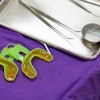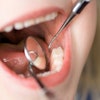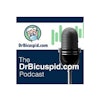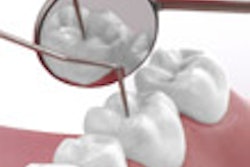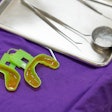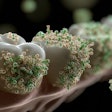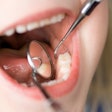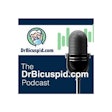Children given an oral syrup containing xylitol may be less likely to develop decay in their baby teeth, according to a study in the July issue of Archives of Pediatrics & Adolescent Medicine (Vol. 163:7, pp. 601-607).
Xylitol, approved in the U.S. for use in food since 1963, has been shown to effectively prevent tooth decay by acting as an antibacterial agent against organisms that cause cavities. These previous investigations have primarily involved chewing gum or lozenges used in school-age children with permanent teeth.
Peter Milgrom, D.D.S., of the University of Washington in Seattle, and colleagues evaluated the effectiveness of applying oral syrup containing xylitol among 94 children age 9 months to 15 months in the Republic of the Marshall Islands, where early childhood tooth decay is a serious healthcare problem.
Two active treatment groups received 8 grams per day of xylitol syrup divided into two (33 children) or three (32 children) doses per day. A third control group of 29 children received a small amount (a single 2.67-gram dose) of xylitol syrup per day because the internal review committee appointed by the secretary of health of the Marshall Islands did not permit the use of a placebo.
After an average of 10.5 months, 8 of 33 children (24.2%) receiving two doses of xylitol per day and 13 of the 32 children (40.6%) receiving three doses of xylitol per day had tooth decay, compared with 15 of the 29 children (51.7%) in the control group. The average numbers of decayed teeth were 0.6 in the two-dose xylitol group, one in the three-dose xylitol group, and 1.9 in the control group.
"Our results suggest that exposure to xylitol (8 grams per day) in a twice-daily topical oral syrup during primary tooth eruption could prevent up to 70 percent of decayed teeth," the authors wrote. "Dividing the 8 grams into three doses did not increase the effectiveness of the treatment. These results provide evidence for the first time (to our knowledge) that xylitol is effective for the prevention of decay in primary teeth of toddlers."
More research is needed to develop vehicles and strategies for optimal public health, but in populations with high rates of tooth decay, xylitol is likely to be a cost-effective preventive measure, they concluded.
Copyright © 2009 DrBicuspid.com
